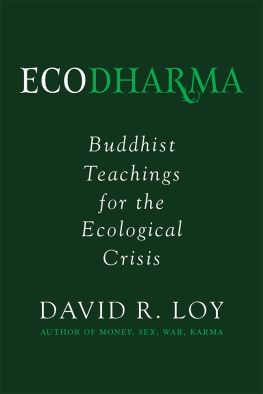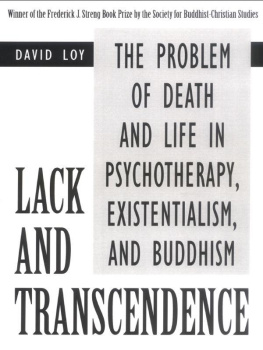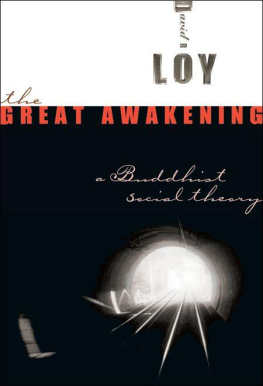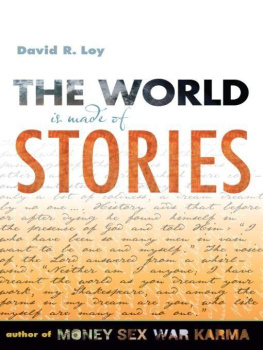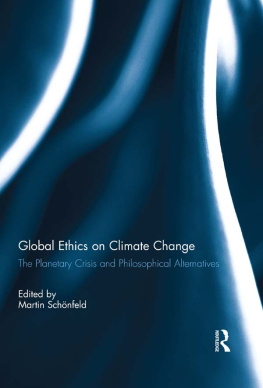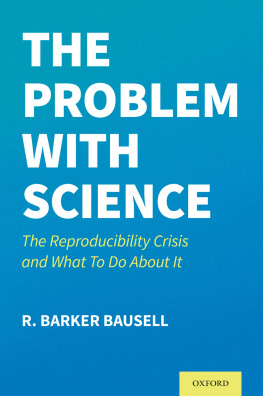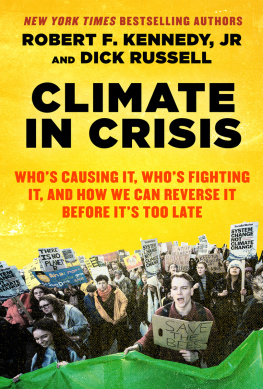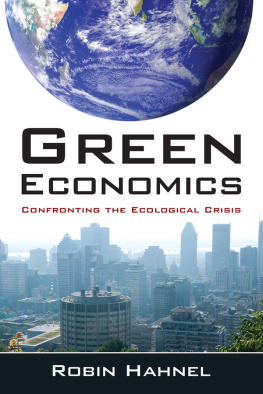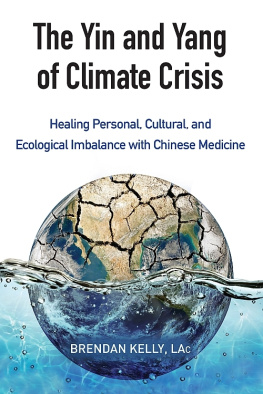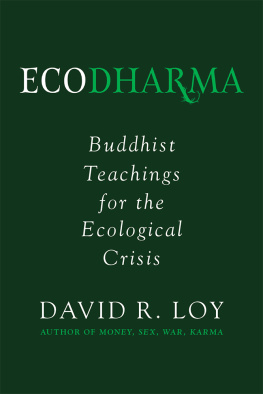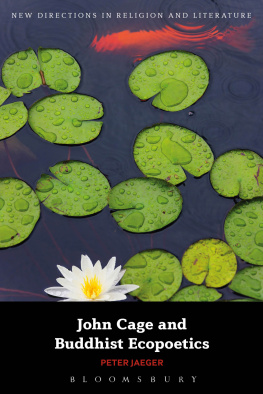Loy - Ecodharma: Buddhist teachings for the ecological crisis
Here you can read online Loy - Ecodharma: Buddhist teachings for the ecological crisis full text of the book (entire story) in english for free. Download pdf and epub, get meaning, cover and reviews about this ebook. City: Somerville;MA, year: 2019, publisher: Wisdom Publications, genre: Religion. Description of the work, (preface) as well as reviews are available. Best literature library LitArk.com created for fans of good reading and offers a wide selection of genres:
Romance novel
Science fiction
Adventure
Detective
Science
History
Home and family
Prose
Art
Politics
Computer
Non-fiction
Religion
Business
Children
Humor
Choose a favorite category and find really read worthwhile books. Enjoy immersion in the world of imagination, feel the emotions of the characters or learn something new for yourself, make an fascinating discovery.
Ecodharma: Buddhist teachings for the ecological crisis: summary, description and annotation
We offer to read an annotation, description, summary or preface (depends on what the author of the book "Ecodharma: Buddhist teachings for the ecological crisis" wrote himself). If you haven't found the necessary information about the book — write in the comments, we will try to find it.
Loy: author's other books
Who wrote Ecodharma: Buddhist teachings for the ecological crisis? Find out the surname, the name of the author of the book and a list of all author's works by series.
Ecodharma: Buddhist teachings for the ecological crisis — read online for free the complete book (whole text) full work
Below is the text of the book, divided by pages. System saving the place of the last page read, allows you to conveniently read the book "Ecodharma: Buddhist teachings for the ecological crisis" online for free, without having to search again every time where you left off. Put a bookmark, and you can go to the page where you finished reading at any time.
Font size:
Interval:
Bookmark:

Wisdom Publications
199 Elm Street
Somerville, MA 02144 USA
wisdompubs.org
2018 David R. Loy
All rights reserved.
No part of this book may be reproduced in any form or by any means, electronic or mechanical, including photography, recording, or by any information storage and retrieval system or technologies now known or later developed, without permission in writing from the publisher.
Library of Congress Cataloging-in-Publication Data
Names: Loy, David, 1947 author.
Title: Ecodharma: Buddhist teachings for the ecological crisis / David R. Loy.
Description: Somerville, MA: Wisdom Publications, 2019. | Includes index.
Identifiers: LCCN 2018022169 | ISBN 9781614293828 (pbk.: alk. paper)
Subjects: LCSH: Human ecology Religious aspects Buddhism. | Religious life Buddhism.
Classification: LCC BQ4570.E23 L69 2019 | DDC 294.3/377 dc23
LC record available at https://lccn.loc.gov/2018022169
ISBN 978-1-61429-382-8 ebook ISBN 978-1-61429-398-9
22 21 20 19
4 3 2 1
Cover design by Phil Pascuzzo. Interior design by Graciela Galup.
For Joanna Macy,
Bhikkhu Bodhi,
Guhyapati,
and all other ecosattvas
Theres good news and theres bad news. The bad news: civilization, as we know it, is about to end. Now the good news: civilization, as we know it, is about to end.
SWAMI BEYONDANANDA (AKA STEVE BHAERMAN)
Authors Note
As readers of my other books may know, Im fond of quotations. An insight precisely and succinctly expressed is something to savor. I encourage readers of this book to take the time to reflect on the quotations before every chapter.
IT IS NO EXAGGERATION to say that today humanity faces its greatest challenge ever: in addition to burgeoning social crises, a self-inflicted ecological catastrophe threatens civilization as we know it and (according to some scientists) perhaps even our survival as a species. I hesitate to describe this as an apocalypse because that term is now associated with Christian millenarianism, but its original meaning certainly applies: literally, an apocalypse is an uncovering, the disclosure of something hidden in this case revealing the ominous consequences of what we have been doing to the earth and to ourselves.
Traditional Buddhist teachings help us wake up individually and realize our interdependence with others. Now we also need to consider how Buddhism can help us wake up and respond to this new predicament. And what does the eco-crisis imply about how we understand and practice Buddhism? Those are the themes this book explores.
The first chapter, Is Climate Change the Problem? offers an overview of our present situation. Although the overwhelming urgency of escalating climate change requires our unwavering attention and wholehearted efforts, we nonetheless need to realize that it is actually not the fundamental issue that confronts us today . That is because global warming is only part of a much larger environmental and social crisis that compels us to reflect on the values and direction of our now global civilization. It is necessary to emphasize this because many people assume that if we can just convert quickly enough to renewable sources of energy, our economy and society can continue to function indefinitely in much the same way. We need to realize that climate change is merely the proverbial tip of the iceberg, the most urgent symptom of a predicament that has more profound implications.
The chapter explores this by looking at whats happening with the oceans, agriculture, freshwater aquifers, persistent organic pollutants (POPs), nuclear accidents, radioactive waste, global population, and of particular concern from a Buddhist perspective the fact that we are already well into the planets sixth great extinction event, in which a large percentage of the earths plant and animal species are rapidly disappearing. This summary can offer only a snapshot: changes are happening so quickly that much of what I write is likely be outdated by the time this book is published. You can add your own favorite issue to this litany (the collapse of honeybee colonies, anyone?), but another dimension also needs to be emphasized: the intersection of these environmental issues with social justice concerns such as racism, ethnicity, gender, neocolonialism, and class. Recently it has become clearer that the ecological problems mentioned above, and the inequitable and hierarchical structures of most human societies, are not separate issues. The 2016 Standing Rock resistance movement in North Dakota, which brought together Native American water protectors with nonindigenous groups such as war veterans, was a watershed event in consolidating those movements. In the last few years American Buddhism has begun to address such concerns, including the lack of diversity within our own sanghas. This conversation is being led by an increasing number of teachers of color, who discuss the relevant social issues far better than I can do in this book they include, for example, Mushim Ikeda, Zenju Earthlyn Manuel, Rod Owens, and angel Kyodo williams.
In response to ecological challenges, many Buddhist teachings can be cited, but this first chapter focuses on an issue that recurs in later chapters: the problem of means and ends. The extraordinary irony is that we have become so obsessed with exploiting and abusing our actual treasure a flourishing biosphere with healthy forests and topsoil, lakes and oceans full of marine life, an unpolluted atmosphere in order to maximize something that in itself has no value whatsoever namely, digital numbers in bank accounts. Because all the worlds economies are wholly owned subsidiaries of the earths biosphere, our preoccupation with ever-increasing production and consumption is now disrupting the ecosystems of our planet.
Another important factor should not be overlooked: we abuse the earth in the ways we do because our predominant worldview about nature rationalizes that misuse. It is our collective (mis)understanding of what the world is, and who we are, that encourages obsession with economic growth and consumption. It is no coincidence that the ecological crisis has developed when and where it has. Most of the problems discussed in this chapter are connected to a questionable mechanistic worldview that unreservedly exploits the natural world because it attributes no inherent value to nature or to humans, for that matter, insofar as we too are viewed as nothing more than complex machines. This implies that the ecological crisis is something more than a technological problem, or an economic problem, or a political problem. It is also a collective spiritual crisis, and a potential turning point in our history.
This brings us to the topic of chapter 2, Is the Eco-Crisis Also a Buddhist Crisis? The ecological and social challenges we face now go far beyond the individual suffering that Buddhism has conventionally been concerned with, so it is not surprising that Buddhist practitioners and institutions have been slow to engage with those issues. On the positive side, Buddhism clearly has the potential to do so. From the beginning its basic teachings have emphasized impermanence and insubstantiality, and this applies to itself. Buddhism is not just what the Buddha said but what he began, and what he began soon spread far beyond its birthplace by interacting with other cultures. Chan/Zen Buddhism, for example, developed in China due to cross-fertilization between Mahayana Buddhism and indigenous Daoism. Today, however, the Asian Buddhist traditions face their greatest challenge ever, as they infiltrate a globalized, secular, hyper-technologized postmodern world that may be self-destructing.
Font size:
Interval:
Bookmark:
Similar books «Ecodharma: Buddhist teachings for the ecological crisis»
Look at similar books to Ecodharma: Buddhist teachings for the ecological crisis. We have selected literature similar in name and meaning in the hope of providing readers with more options to find new, interesting, not yet read works.
Discussion, reviews of the book Ecodharma: Buddhist teachings for the ecological crisis and just readers' own opinions. Leave your comments, write what you think about the work, its meaning or the main characters. Specify what exactly you liked and what you didn't like, and why you think so.

